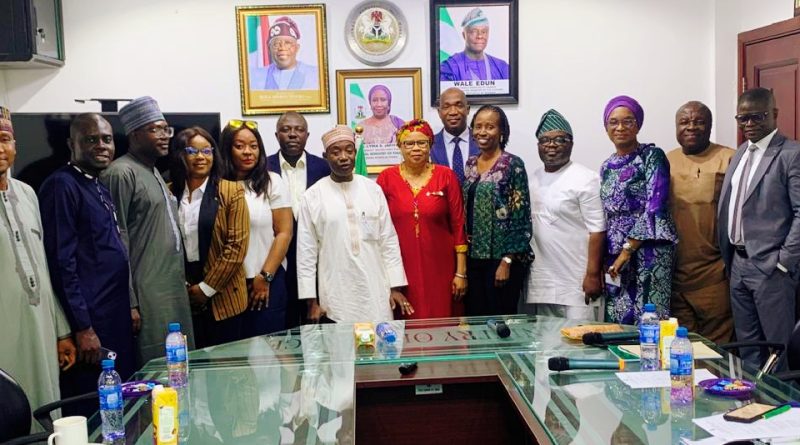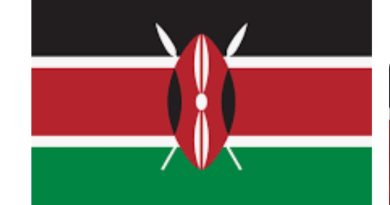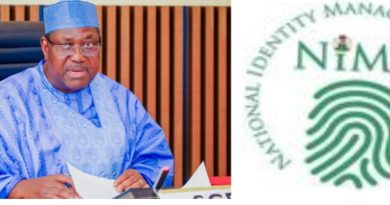FGN Assures Stakeholders of collaboration to drive Economic Growth
Oru Leonard
In its avowed determination to improve the lives of the citizenry in line with contemporary realities, the Federal Government of Nigeria has assured that it will continue to collaborate with relevant stakeholders with a view to implementing policies, programmes, and projects that will reinvigorate the nation’s economy.
The Permanent Secretary Federal Ministry of Finance, Mrs Lydia Shehu Jafiya, gave the assurance today in her office in Abuja
during a sensitisation programme on the forth-coming implementation of Quarterly Citizens and Stakeholders Engagement.
She stated that the gathering provides an opportunity for
making a critical commitment to transparency, accountability, and inclusive dialogue in the management of the country’s finances and economic policies.
Represented by the Ministry’s Director, Economic Research and Policy Management (ERPM), Mrs Grace Ogbonna, the Permanent Secretary, explained that the Ministry plays a vital role in shaping Nigeria’s economic future. *Our policies directly affect the livelihoods of millions of Nigerians, and it is our duty to ensure that these policies are communicated effectively, understood by the public, and enriched by the feedback and participation of all stakeholders.* Jafiya said.
She informed that the
introduction of Quarterly Citizens and Stakeholders Engagement by the Central Delivery Coordination Unit (CDCU) in the reporting of presidential priorities and ministerial deliverables is a strategic move to enhance communication between the government and its citizens. *It marks a significant step toward improving the transparency and accountability of our financial policies, programs, and overall economic strategies*, she added
Mrs Jafiya explained further that in a democratic society, the management of public finances is not a function that can be carried out in isolation, but that it is imperative that citizens are aware of how their tax contributions are being utilised, how national debt is being managed, and how public funds are allocated as well as spent.
This level of engagement she added is essential to achieving sustainable economic growth and inclusive development.
She noted that citizens and stakeholder engagement were equally crucial for the successful implementation of reforms. Stressing that since the beginning of this administration, the Federal Ministry of Finance under the stewardship of the Honourable Minister of Finance and Coordinating Minister of the Economy, Mr Wale Edun has spearheaded several reforms aimed at improving revenue generation, reducing leakages, and ensuring fiscal discipline.
Mrs Jafiya emphasized that the success of these reforms has led to improvements in the Gross Domestic Product (GDP) of the country. *We are not there yet; however, we believe that the way forward is the designing of policies and faithful implementation of strategies that will address Nigeria’s current socio-economic challenges and translate the Renewed Hope vision into tangible inputs which will help to transform our economy.*
*It is pertinent to note that despite the challenging economic outlook, economic growth strengthened in the second quarter of 2024, with GDP growth by 3.19% (year-on-year) in real terms. This growth rate is higher than the 2.51% recorded in the second quarter of 2023 and higher than the first quarter of 2024 growth of 2.98%. The performance of the GDP in the second quarter of 2024 was driven mainly by the services sector, which recorded a growth of 3.79% and contributed 58.76% to the aggregate GDP. The agriculture sector grew by 1.41%, from the growth of 1.50% recorded in the second quarter of 2023. The growth of the industry sector was 3.53%, an improvement from -1.94% recorded in the second quarter of 2023. In terms of share of the GDP, the industry and services sectors contributed more to the aggregate GDP in the second quarter of 2024 compared to the corresponding quarter of 2023. In the second quarter of 2024, aggregate GDP at the basic price stood at N60, 930,000.58 million in nominal terms,* the Permanent Secretary said.
She informed further that *this performance is higher when compared to the second quarter of 2023, which recorded aggregate GDP of N52, 103,927.13 million, indicating a year-on-year nominal growth of 16.94%.*
Mrs. Jafiya reaffirmed that the Federal Ministry of Finance will lead these proposed quarterly engagements while also observing that the active participation of various stakeholders is critical. *The private sector remains a key driver of Nigeria’s economic growth. Your insights will be valuable in shaping policies that create an enabling environment for businesses to thrive while fostering sustainable economic development. Your role as watchdogs of democracy is critical in ensuring that these engagement sessions are productive and impactful.*
As the voice of the people, she said, *we also count on the media to report accurately on these engagements, ensuring that the broader public are well informed of government activities. The media is a powerful tool in promoting transparency and disseminating information. Your contributions will ensure that the voice of the people is adequately represented, especially those at the grassroots level.*
While acknowledging that the implementation of the Quarterly Engagement Sessions will not be without its challenges, the Permanent Secretary expressed confidence that with collaboration and commitment of civil society organizations, religious bodies, the media and other relevant stakeholders,
these obstacles can be overcome.
She commended the Honourable Minister of Finance and Coordinating Minister of the Economy, Mr Wale Edun, for his stewardship and unwavering commitment to driving the various economic reforms in line with the policy thrust of the present administration, assuring further that the Ministry will continue to create an enabling environment to ensure the successful realization of its mandate
Earlier in his remarks, the Delivery Manager, Central Delivery Coordination Unit (CDCU), Mr. Uyi-Aivinhenyo Osagie stated that the sensitization session on the implementation of stakeholders’ engagement by the Federal Ministry of Finance was aimed
to enlighten citizens’ groups on the Ministry’s performance in delivering on the 8 Priorities of President Bola Ahmed Tinubu’s Administration, especially in the area of ensuring sustainable development and economic stability of our nation.
With this stakeholder engagement and others to follow soon, Mr. Osagie said the Ministry has commenced the process of involving citizens in the implementation of the performance contract, which had earlier on been signed with Mr President.
*This will involve informing, sensitizing, effectively engaging, and prioritizing stakeholders’ inputs* *in the implementation of its Ministerial Deliverables. The goal is to build better relationships with stakeholders, which can lead to improved citizens collaboration and performance of the Ministry.*
*All stakeholders as well as citizens groups now have an opportunity to understand the critical work the Ministry is doing towards reforming the economy, make informed inputs, raise observations and recommendations to help the government achieve its desired outcomes.*
*As stakeholders, each one of you plays a vital role in this process. Whether you are from the government, civil society, or the private sector, your involvement is essential. Together, we can ensure that the government performs in a way that maximizes their impact and benefits all citizens. By closely monitoring the performance of the Federal Ministry of Finance, you can help identify inefficiencies, support performance, and ensure that resources are directed towards their intended purposes,* he said.
While commending the efforts of the Ministry in ensuring the realization of the policy objectives of government aimed at repositioning the economy, a cross section of the civil society organizations at the session advocated the need for citizens engagement in the formulation and implementation of government policies in order to bridge gaps in communication between the government and the people at the grassroots
(FMOF Press)




